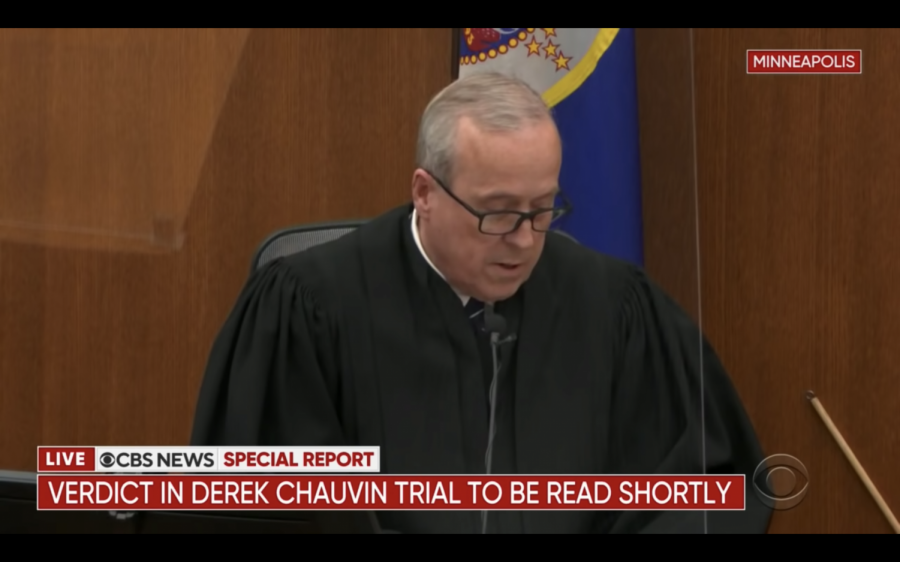Verdict of Derek Chauvin gives students relief, sets precedent
CBS
Judge Peter Cahill prepares to read out Derek Chauvin’s verdict April 20. In the wake of the verdict, U-High students of color felt mostly relief after a long period of apprehension.
April 22, 2021
On April 20, all eyes were on the Minneapolis courtroom where Derek Chauvin, the disgraced former police officer accused of murdering George Floyd last May in an incident that set off nationwide protests and racial reckoning. The courtroom camera held a steady closeup on Mr. Chauvin as the long-awaited verdict was finally read out.
A little under a year after the death of Mr. Floyd, a Black man, and after weeks of deliberation, Mr. Chauvin, who is white, has been declared guilty on all three charges: second-degree murder, third-degree murder and second-degree manslaughter. In the wake of the verdict, U-High students of color are feeling mostly relief after a long period of apprehension.
“I’m really happy about it,” sophomore Akshay Badlani said. “It’s a step in the right direction, but there’s still a lot of progress to be made.”
According to junior Brent Pennington, his relief at the verdict was tainted by the idea that he had reason to question the effectiveness of the justice system.
“But what I should say is that I should not have felt stress that justice was going to be carried out wrong,” Brent said. “The fact that I did feel stress is really disappointing.”
Senior Mikaela Ewing came away from the verdict with similar mixed emotions.
“Yes, this is justice, but also at the same time, it should just be a normal consequence for when you do things that you’re not supposed to be doing,” Mikaela said.
Senior Eliza Doss was relieved at the outcome of the verdict and hopes that the verdict will set a precedent for future rulings.
She said, “This is a case where people can point back to and be like, ‘This is a time where justice was served.’”
News of the verdict came among an ongoing series of incidents of police misconduct.
“Accountability for one action doesn’t mean just the problem has been solved for the rest of the justice system,” ninth grader Olivia Quiles said, “because we’re still dealing with this every day.”




























































